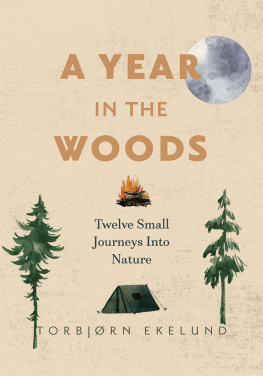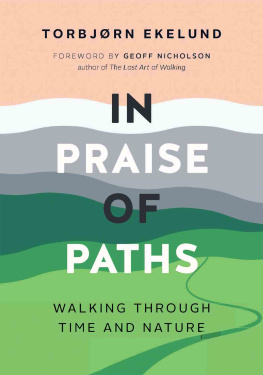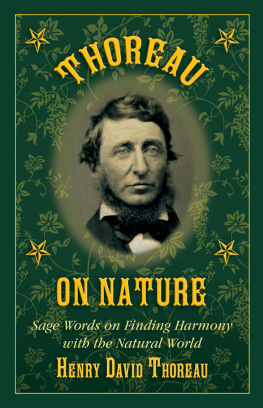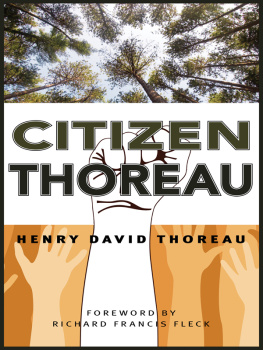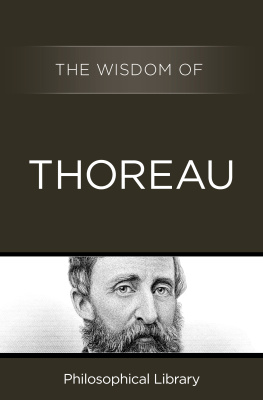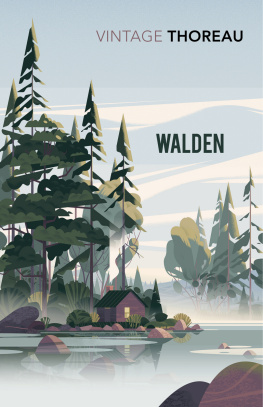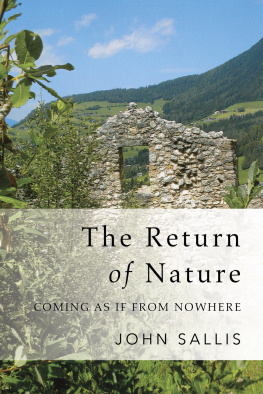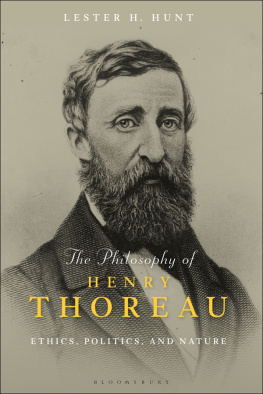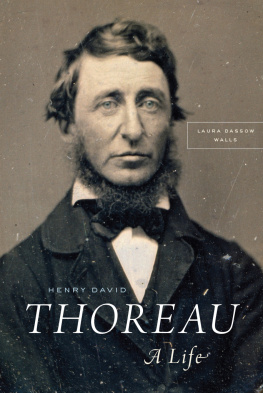First published in English by Greystone Books in 2021
Originally published in Norwegian as ret i skogen En mikroekspedisjon, copyright 2014 by Cappelen Damm English translation copyright 2021 by Becky L. Crook
21 22 23 24 25 5 4 3 2 1
All rights reserved. No part of this book may be reproduced, stored in a retrieval system or transmitted, in any form or by any means, without the prior written consent of the publisher or a license from The Canadian Copyright Licensing Agency (Access Copyright). For a copyright license, visit accesscopyright.ca or call toll free to 1-800-893-5777.
Greystone Books Ltd.
greystonebooks.com
Cataloguing data available from Library and Archives Canada
ISBN 978-1-77164-512-6 (cloth)
ISBN 978-1-77164-513-3 (epub)
Copy editing by Lucy Kenward
Proofreading by Stefania Alexandru
Jacket and text design by Belle Wuthrich
Jacket images by Noli Molly and Kate K./ Adobe Stock
Greystone Books gratefully acknowledges the Musqueam, Squamish, and Tsleil-Waututh peoples on whose land our office is located.
Greystone Books thanks the Canada Council for the Arts, the British Columbia Arts Council, the Province of British Columbia through the Book Publishing Tax Credit, and the Government of Canada for our publishing activities.
This translation has been published with the financial support of NORLA.

There was no particular line of thought in my mind, nor did I expect to carry out any certain activity or to see anything special along the way. There were no appointments, no plans, no one else who was going to join me. Every decision was up to me alone to make.
TORBJRN EKELUND
Contents
Nature: the portion of existing reality that was not cultivated by humankind, but which originated and developed organically; the opposite of culture.
THE GREAT NORWEGIAN ENCYCLOPEDIA
(STORE NORSKE LEKSIKON)
A walk in the woods
WEREFER TO GRAND WILDERNESS UNDERTAKINGS as expeditions. It seems that more and more people are setting off on expeditions nowadays. But those who went on expeditions in the early 1900s often reported that things used to be different. Back then, explorers went alone. Mere mention of their plans was enough to make the headlines. An entire nations citizens would follow the explorers from their sofas, enraptured, and when they returnedif they returnedthey were worshipped as demigods. Modern explorers by contrast are rarely if ever given an interview and instead have to write an extensive travel blog that competes for readership with hundreds of other blogs.
Still, the word expedition carries with it a ring of something grand and important, even today. It has associations in our minds with the word mission. And yet at the same time it embodies a sense of altruism, the feeling that this undertaking is being done on behalf of others, for a good cause, to the betterment of humankind.
Charles Darwin set off on expeditions in the name of science. Roald Amundsen went to see places no one else had ever seen. They returned with useful knowledge. But today, almost every spot on the globe has been discovered and probed. The earth has been mapped down to the last tiny inch, and only rarely do modern expeditions have a purpose other than simply to generate a feeling of personal satisfaction among their participants.
Expeditions must always have a purpose. Thats the primary characteristic of an expedition, almost its definition: that it is carried out by people who know where they are going. Starting at point A, they proceed to point B. Between A and B, they will perhaps encounter an unknown number of challenges. Hunger and cold, ferocious beasts, uncontrollable forces of nature. They should preferably carry their own supplies, on a sled or in a backpack. Time is also an important factor. If the expedition never reaches its predefined goal, it has of course failed. And even if the expedition does reach its goal but takes longer than predicted, it is also considered somewhat of a failure.
The Aboriginal Australians operate under a different concept that is diametrically opposed to that of an expedition. The term walkabout is not the aboriginal word, but the idea basically describes a walk through the bush or outback without any predetermined goal, with both an undefined duration and route. It might best be described as ambling about in the wild. Without any intention of time or space, a walkabout is thus the antithesis of a western expedition. This idea appeals to me very much.
When I was little, I spent most of my time outdoors. The way I remember it, nature permeated almost everything I did. It was present in even the tiniest things. In the mosquito bites that kept me awake through endless summer nights. In the intense smell of decay and the rot of wet autumn days. In the mute astonishment when my tongue stuck to frozen metal in the winter, and the shock when I realized I could not pull it loose. I was in nature, in a manner perhaps only children are able to be.
Years passed. I dreamt of becoming a famous explorer the strong, silent typethe first person to set foot on some blank spot of the map. I continued to seek out experiences in the wild. I went fishing. I slept in tents. I went on boat trips and hiked in the mountains. I did all of this, and when I got older, I did even more. I visited deserts and rain forests and volcanoes and lagoons. My eyes saw mountain massifs so enormous that they took my breath away. And yet, none of these experiences left the kind of impression that nature had in my childhood. They didnt sink in and root into my being in the same way. The reason, I discovered, was that a distance of sorts now existed between me and nature. Here I stood, on the outside as an observer, regarding the ice-capped mountains and the steaming rain forests. I was a guest in the landscape. The landscape and I were not intertwined as we had been when I was a child.
Back then, I never ventured very far. But every day was nonetheless some new adventure. I roamed about in the wilderness I felt belonged to me: a Norwegian lowland forest made up of spruce and deciduous trees, logging roads, small birds among leafy branches, pine trees higher up, swamps and ponds, blackbirds in the spring, mosquitoes in the mild summer evenings, and trout that always seemed to be jumping. I now missed the feeling of being in nature because it had meant so much to me early in life. I took it as a sign that all of my strongest memories have to do with nature.
Now I am an adult. I have long since gotten used to spending very little time in the woods, much less than when I was younger. There are long stretches when I dont even think about it at all because there are other, more pressing matters on my mind. My work. But also all of the pickings-up and droppings-off, the birthdays and conferences, over-the-hill celebrations and volunteering, things to be maintained and plans to be made, accounts to be balanced and friends to be invited over for supper. I am a freelance writer. Ive spent the past seven to eight years working from my home office on parental leave. In what has been a blissful mix of work and home life, I have ping-ponged around the kitchen like a great, fertile goddess, having a conversation on the phone while cooking oatmeal and holding a child on my hip.

